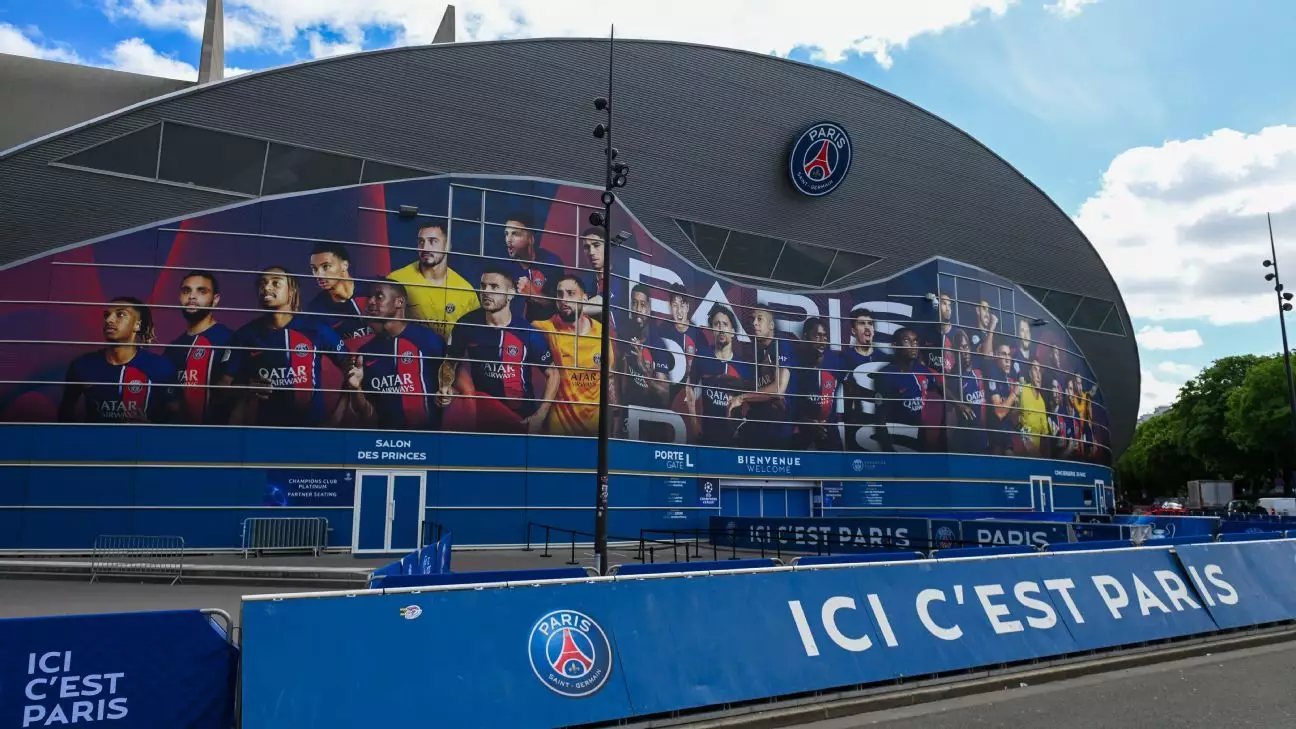In recent years, the financial landscape of football and international investment has witnessed seismic shifts, especially regarding the Gulf states’ involvement in Western markets. Qatar, notably through the Qatar Investment Authority (QIA) and Qatar Sports Investments (QSI), has been a prominent player, particularly in the realm of football with the acquisition of Paris Saint-Germain (PSG). However, recent reports suggest a notable cooling of interests in France, raising questions about the sustainability of this once-thriving relationship.
Sources have indicated that QIA has begun to reassess its investments in France, which were once considered a cornerstone of its economic strategy. The sovereign wealth fund, with assets estimated at around €500 billion, has historically viewed France as a vital market but has recently begun to slow its investment activities. This shift is not merely a reactionary measure to ongoing legal scrutiny faced by PSG’s president, Nasser Al-Khelaifi, but rather part of a broader trend that has been evolving over the past year.
Al-Khelaifi’s recent legal challenges, which relate to allegations of corruption tied to an external businessman and not his activities with PSG, may have amplified concerns among Qatari investors. However, it is essential to analyze the deeper causes driving this withdrawal from France. Allegations against high-profile figures often garner significant media attention, diverting focus from more systemic issues that may be influencing investment decisions.
Qatari officials have publicly expressed dissatisfaction with how they perceive they are treated by the French legal system and media outlets. The scrutiny that high-profile investments attract, combined with the challenges posed by local regulations and negative press, has led to a reevaluation of relationships and strategies. This frustration has been echoed by insiders who highlight the difficulties in navigating the French political environment, which some Qatari investors believe hampers their business efforts.
With prime real estate holdings and substantial investments in various sectors, the Qatar Investment Authority appears to be strategically recalibrating its exposure to the French market. Reports suggest a systematic divestment from different assets, signaling that the environment in France has become less hospitable for Qatari interests.
The ownership of PSG by QSI since 2011 has been marked by unprecedented investment in talent. The club has acquired world-class players like Neymar, Kylian Mbappé, and Lionel Messi, resulting in multiple domestic league titles. However, despite significant financial investment and a star-studded roster, PSG has consistently failed to achieve what many consider the ultimate goal: winning the UEFA Champions League.
This lack of success is particularly poignant for QSI, as it has defined its ambition through European competition. The addition of an American investment fund, Arctos, which recently acquired a minority stake in PSG, indicates a shift in strategy wherein QSI is open to outside partnerships. This diversification could signal a pivot towards a more collaborative approach in fostering international investments while reducing full reliance on the French market.
Given the evolving dynamics, Qatar’s investment strategy now appears to emphasize exploration beyond the French borders. Reports of QSI diversifying its portfolio with a stake in the Portuguese club Braga and discussions between beIN Media Group and Saudi Arabia fortify this trend. By shifting focus to other international markets, Qatar aims to broaden its investment base and reduce potential risks associated with the French economy and political landscape.
Qatar’s media group has also indicated a strategic reduction in media rights expenditure in France, which showcases a deliberate approach to cut back on commitments that may not yield expected returns. Such adjustments are indicative of a comprehensive long-term strategy focused on fostering partnerships and investments in markets that are perceived to be more welcoming and less fraught with challenges.
As Qatar reevaluates its investment strategy in France, the implications for PSG and the broader landscape of international investments in sports remain to be seen. The cooling of interest from QIA and QSI highlights the impact that regulatory challenges and public perception can have on investment strategies. As Qatari officials seek to recalibrate their approach and explore opportunities in more amenable markets, the future of PSG and its standing in European football may take on a new direction—one that blends ambition with prudence in a rapidly shifting financial landscape.

